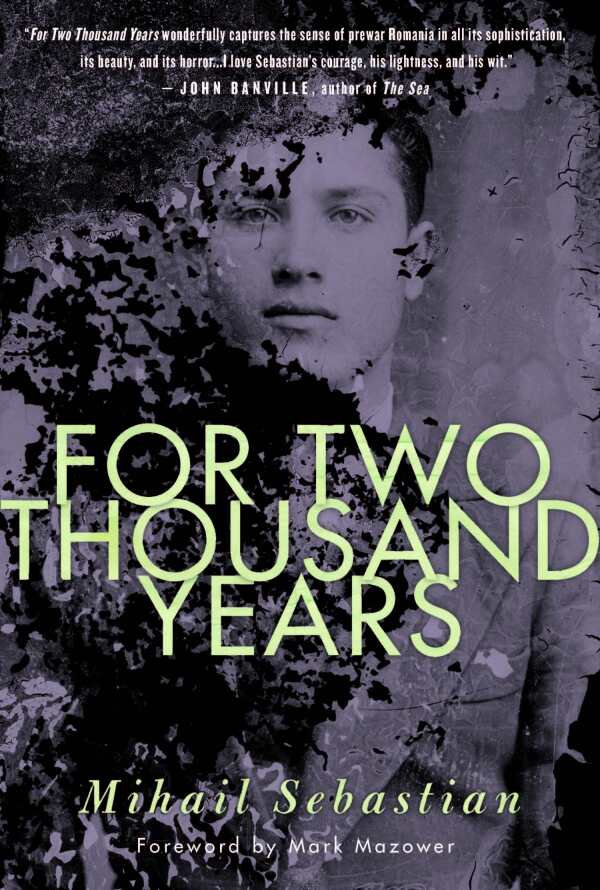For Two Thousand Years
This newly translated novel explores timeless themes of acceptance and struggle with power, grace, and insight.
For Two Thousand Years is a profoundly moving novel that brilliantly captures the complex tensions of Eastern Europe prior to World War II.
This Romanian work by Mihail Sebastian (1907-1945) provoked a scandal when it was published in 1934 for its unflinching description of anti-Semitic and Zionist themes, and it fell into obscurity for decades.
Masterfully translated into English by Philip Ó. Ceallaigh, the novel is significant on many levels. Capturing a tumultuous time in Romanian history, it is a powerful, beautifully written story that compares well with the work of Sebastian’s contemporaries Mircea Eliade and Eugene Ionesco.
The unnamed narrator tells his story as a series of journal entries, beginning as a restless student in Bucharest. He engages in lively debates with professors but is also regularly beaten by his anti-Semitic classmates: “I received two punches during today’s lectures and I took eight pages of notes. Good value, for two punches.”
Five years later, he has achieved a tentative “peace, ready to take things as they come,” working as an architect on a controversial oil-field development north of Bucharest. He works in Paris for a while at a remove from Romania, before returning to his uneasy homeland near the close of the novel.
But the events that unfold are not the point of this semi-autobiographical work. This is a book of deep ideas. Thinly veiled references to Romanian intellectuals are piercing, as the narrator contemplates economic, artistic, and political currents, from reflections on communism to a lively consideration of a painting by Marc Chagall. Throughout, he also considers, often ambivalently, his Jewish identity: “Two thousand years can’t be overcome by leaving for somewhere … We live always in the troubled memory of them.”
The themes are heavy, yet the writing is marked by wit and a light touch. The narrator sketches many startlingly beautiful passages, including several about his beloved Danube: “Mountains of snow that yesterday were surging up at us now lie defeated, like wild beasts, their muzzles laid upon their paws.”
For Two Thousand Years explores timeless themes of struggle and acceptance with power, grace, and insight.
Reviewed by
Kristen Rabe
Disclosure: This article is not an endorsement, but a review. The publisher of this book provided free copies of the book to have their book reviewed by a professional reviewer. No fee was paid by the publisher for this review. Foreword Reviews only recommends books that we love. Foreword Magazine, Inc. is disclosing this in accordance with the Federal Trade Commission’s 16 CFR, Part 255.

